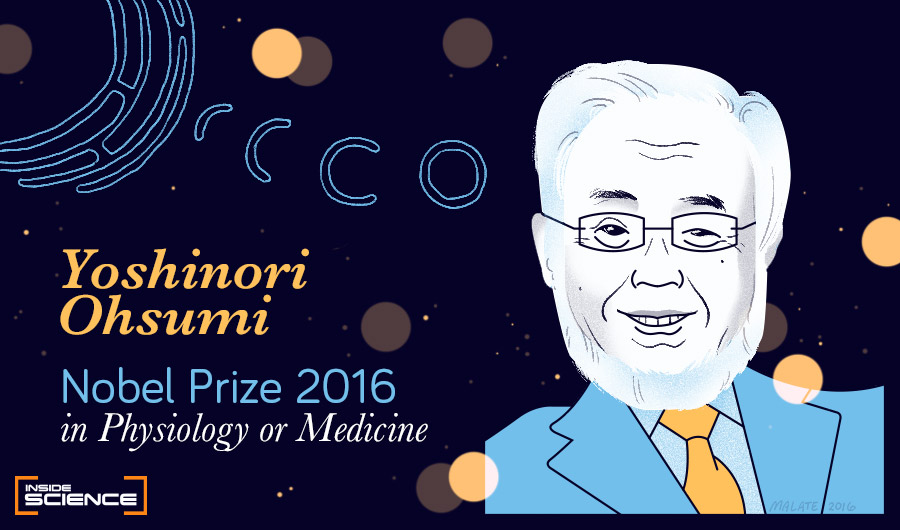Yoshinori Ohsumi Wins Nobel Prize For Cellular Breakdown And Recycling Discoveries

(Inside Science) – The 2016 Nobel Prize in physiology or medicine has been awarded to a Japanese cell biologist "for his discoveries of mechanisms for autophagy."
The prize goes to Yoshinori Ohsumi of the Tokyo Institute of Technology, who in the 1990s performed a series of experiments using baker's yeast, that advanced the understanding of how cells destroy their own contents, using a compartment called a lysosome. His work built on the observations of Nobel laureate Christian de Duve, who was among the first to observe autophagy in the 1960s, and coined the term.
Ohsumi eventually showed that the same processes he observed in yeast cells occur in human cells. Disruptions in autophagy and mutations in related genes are linked to Parkinson’s disease, type 2 diabetes and genetic diseases.
More details are available at http://www.nobelprize.org/nobel_prizes/medicine/
Editor's Note: Inside Science will provide detailed coverage of the 2016 Nobel Prize in Physiology or Medicine in a longer article to be issued later today. All of our coverage of the 2016 prizes is available here.
For our coverage of other Nobel Prizes from recent years, please click here.
